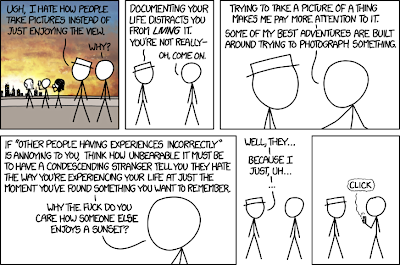Untranslatable
The ease and reasonable accuracy with which Google Translate translates words, sentences and paragraphs sometimes makes us forget how hard it is to translate entire books. So why is translating books so hard? The usual “culprit” is context: the background, cultural practices and accepted/expected behavioural norms of one language (and by extension, region) don’t apply in others. Context aside, some words have no equivalents in other languages. But contrary to what you might think, this article on “true untranslatability” says the issue is not the lack of one-to-one words: “The common trope that language X has no word for Y is usually useless (it usually means language X uses several words instead of one for Y).” It cites this great example: “shockingly specific single words in other languages like mamihlapinatapei, which is apparently Yagan for “the wordless yet meaningful look shared by two people who desire to initiate something, but are both reluctant to start.” Bu...


